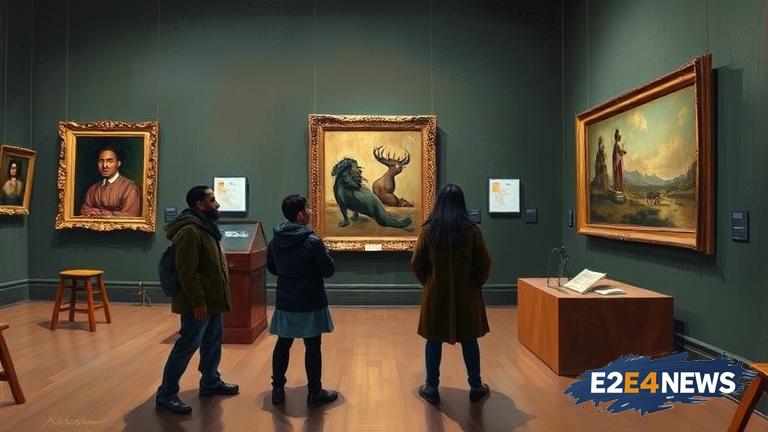In a groundbreaking effort to redefine the way museums approach Blackness, Alayo Akinkugbe’s ‘Reframing Blackness’ project is challenging institutions to see Blackness first. By centering Black perspectives and experiences, Akinkugbe aims to create a more inclusive and equitable cultural landscape. The project seeks to address the historical erasure and marginalization of Black people in museums, where their stories and contributions have often been relegated to the sidelines. Akinkugbe’s vision is to create a paradigm shift in the way museums collect, exhibit, and interpret Black art and culture. This requires a fundamental transformation of the way museums operate, from the curatorial process to the way they engage with their audiences. By prioritizing Blackness, museums can begin to dismantle the systemic racism and bias that has long plagued the cultural sector. Akinkugbe’s project is not just about representation, but about creating a more nuanced and complex understanding of Blackness and its many facets. It is about recognizing the diversity and richness of Black cultures, and acknowledging the ways in which Black people have shaped and continue to shape the world. The project has sparked a necessary conversation about the role of museums in perpetuating or challenging racism and inequality. It has also highlighted the need for greater diversity and inclusion in the museum sector, where Black people are still woefully underrepresented. Akinkugbe’s work has been met with both praise and criticism, with some hailing it as a revolutionary step forward and others questioning its feasibility and impact. Despite the challenges, Akinkugbe remains committed to her vision, recognizing that reframing Blackness is an ongoing process that requires patience, dedication, and a willingness to challenge the status quo. The project has already begun to bear fruit, with several museums and cultural institutions expressing interest in collaborating with Akinkugbe and incorporating her ideas into their programming. As the project continues to evolve, it is likely to have a profound impact on the way museums approach Blackness and the ways in which Black people are represented and engaged in the cultural sector. Akinkugbe’s work is a testament to the power of art and culture to challenge and transform society, and a reminder that even the most seemingly intractable institutions can be changed through determination and creativity. The ‘Reframing Blackness’ project is a call to action, urging museums and cultural institutions to take a critical look at their own practices and policies, and to work towards creating a more just and equitable cultural landscape. It is a challenge that requires courage, humility, and a willingness to listen and learn, but one that has the potential to yield profound rewards. By reframing Blackness, Akinkugbe and her collaborators aim to create a world where Black people are seen, heard, and valued, and where their contributions to art, culture, and society are recognized and celebrated. The project is a powerful reminder that Blackness is not a monolith, but a complex and multifaceted phenomenon that encompasses a wide range of experiences, perspectives, and cultures. It is a call to recognize and honor the diversity and richness of Blackness, and to work towards creating a world where all people can thrive and reach their full potential. As Akinkugbe’s project continues to gain momentum, it is likely to inspire a new generation of artists, curators, and cultural leaders to challenge the status quo and push the boundaries of what is possible. The ‘Reframing Blackness’ project is a beacon of hope for a more inclusive and equitable future, one where Blackness is celebrated and valued, and where all people can come together to create a brighter, more just world.
